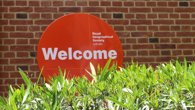
Explore 2021
Explore 2021 was held online over the weekend of 6 and 7 November 2021, with a variety of networking sessions and workshops run in Zoom break out rooms.
By viewing this content, you agree to Adobe's privacy policy.
Having trouble viewing our speaker details? Try static view
Programme
Saturday 6 November 2021
10.00 - 17:30
9.30 - Zoom opens
10.00 - Welcome from Society's Director, Joe Smith and handover to the Chair for the day, Steve Jones
10.10 - Protecting the planet: tackling the threats of climate change, biodiversity loss and new infectious diseases | Niall McCann
10.25 - Arctic Sense | Andreas Heide
10.35 - Jan Mayen 2021 | Hugh Anderson
10.45 - Q&A
10.55 - Break
11.10 - Acoustic sensors in the tropical forests, Belize | Richard Pyshorn and Chris Minty
11.30 - Himalayan fieldwork in the time of COVID | Sarah Tingey
11.45 - What it means to be an explorer in the 21st century? | Richard Phillips
12.05 - Break
12.20 - Expedition planning: the keys to success | Stephen Jones
12.50 - Tribute to Shara Dillon and Jessi Tucker | Shane Winser
13.00 - Lunch break
13.30 - Networking and advice desks (in Wonder)
14.15 - Responsible travel during a climate emergency | Christy Hehir
14.35 - Ingenious Expedition launch: delivering inclusive community expeditions | Suresh Paul
14.40 - Keeping healthy in the field | Daniel Grace
15.00 - Introduction to workshops followed by Tea break
15.30 - 16.30 - Expedition logistics workshops (please select one):
-
Mountain and trekking expeditions | Chaired by Rebecca Coles | Panel: Sarah Tingey, Spike Reid, Mark Edsell
-
Polar and arctic environments | Chaired by Helen Turton
-
Tropical forest expeditions | Chaired by James Dyer | Panel: Susannah Cass, Stuart, Joshua Allison
-
Oceans and marine projects | Chaired by Oliver Beardon | Panel: Freija Mendrik and Lucie Machin
-
Travels with purpose | Chaired by Scotty Johnson and Christy Hehir
16.30 - Feedback from workshops / Ask the experts
17.00-17.30 - Virtual Bar (Tea, cake - BYO)
Sunday 7 November 2021
9.30 - 16:45
9.15 - Zoom opens
9.30 - Welcome and introduction | Joe Smith and handover to Chair for the day, Shane Winser
9.40 - Is there anything left to explore? | James Borrell
10.00 - Key Biodiversity Areas and how field projects can contribute valuable data towards recognising and monitoring places of global significance for biodiversity conservation | Thomas Starnes
10.20 - Medical fieldwork in Sikkim: the environmental impact | Mark Edsell
10.35 - Towards more ethical field research practices | Kate Baker, Mark Griffiths and Surshti Patel
10.55 - Why fieldwork matters: a passion for glaciers | Jemma Wadham
11.15 - Q&A followed by a short break
11.30 - 12.30 - Field research workshops (please select one):
-
Human and social sciences | Mark Griffiths, Kate Baker and Surshti Patel
-
Biological and natural sciences | James Borrell and Eleanor Drinkwater
-
Earth and environmental sciences | Catherine Souch and Julian Martin
-
GIS and field mapping | Thomas Starnes and Sam Gandhi
-
School and youth expeditions | Will Close-Ash, Susannah Cass, Simon Pinfield
-
Expedition and wilderness medicine | Josh Allison, Daniel Grace, Mark Edsell
12.30 - Lunch break 13.00 Advice desks
13:30 - How to submit a successful grant application | Julian Martin
13.45 - The Matriarch Adventure | Catherine Edsell
13.55 - Resilience in polar expeditioners | Paul Burghum
14.05 - Top tips for social media | Nina Seale
15.00 - 16.00 - Workshops: Communicating your discoveries workshops. Sharing work, inspiring action (please select one):
-
Film and video: visual storytelling | Reza Pakravan and Kevin Merrey
-
Getting published | Phil Emmerson, Alicia Colson and Katie Burton
-
Sound recording for radio and podcasts | Richard Scrase and Harri Hegarty
-
Creative projects: Art, exhibitions and participation | Harriet and Rob Fraser, Laura Harrington, Edwina fitzpatrick, Tim Taylor and Luce Choules
16.00 - Break
16.15 - Final Q&A
16.25 - Presentation of YET Lifetime Achievement Award | Will Close-Ash
16.30 - Closing address: Your priorities tomorrow | Shane Winser

